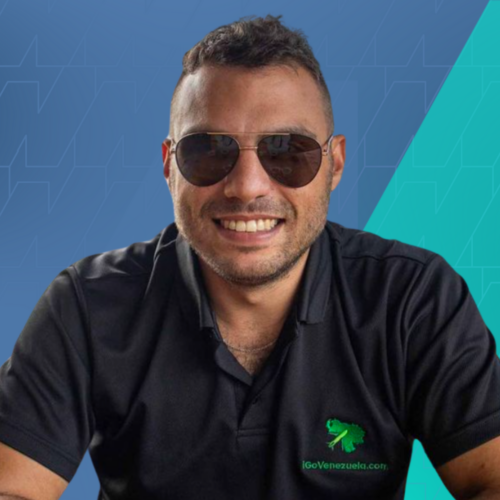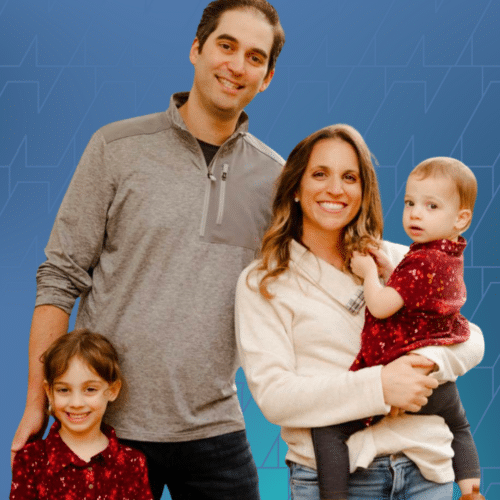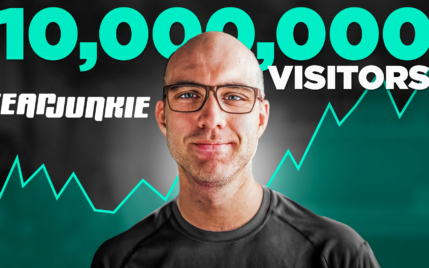How Ben Adler Successfully Bootstrapped Keyword Chef Into a Full-time Business
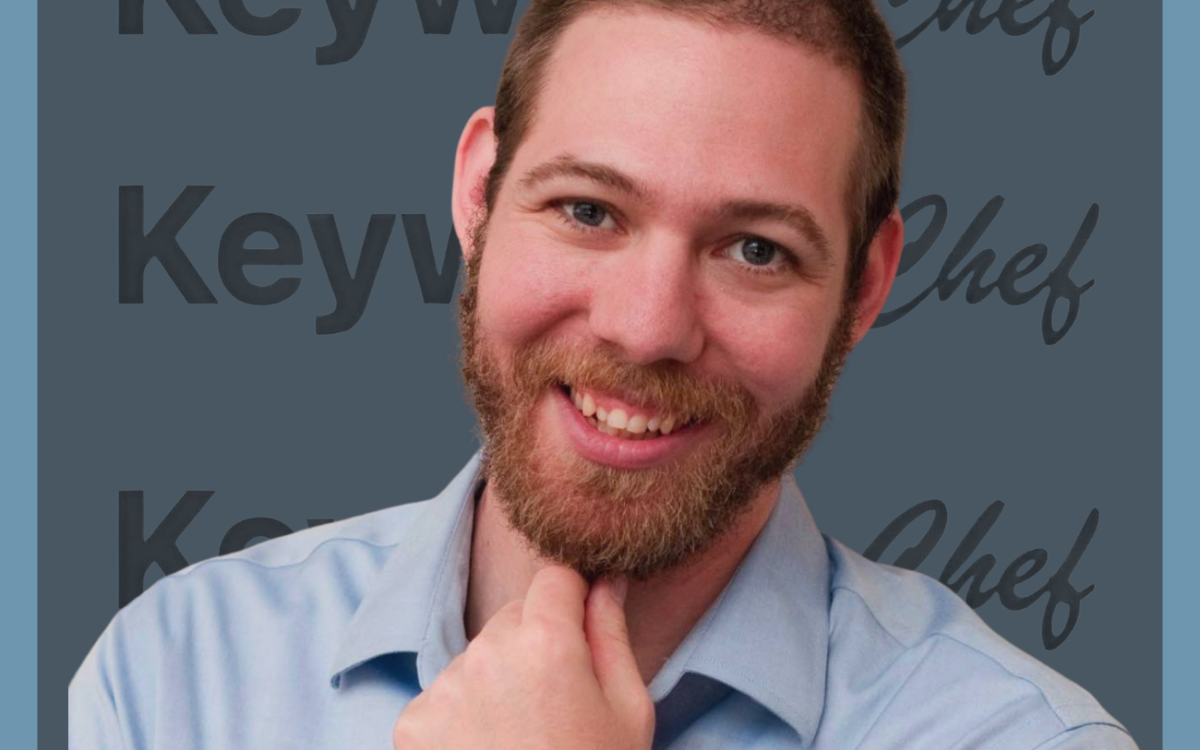
When you buy something through one of the links on our site, we may earn an affiliate commission.
Ben Adler had been successfully building niche websites for several years until one day he realized that his keyword research process could be automated and turned into a business. And Keyword Chef was born.
His tool is making waves in the industry for its simplicity, pay-as-you-go pricing model, and ability to find keywords in any niche that are truly low competition.
If making a healthy full-time income as a bootstrapped SaaS business during its first year in operation is any indication, the future looks bright for Ben and Keyword Chef.
Keep reading to learn how he did it, his unique marketing philosophy and growth strategy, and his advice for other entrepreneurs, website builders, and business owners.
Contents
- Getting Fired as a Programmer
- Discovering Niche Sites
- The Beginning of Keyword Chef
- Finding a Keyword Research Strategy that Worked
- A Game Changer for Starting Keyword Chef
- Ben's Marketing Strategies to Drive Growth
- Starting to Focus on SEO
- Achieving Current Revenue Levels
- The Official Launch
- Finding a Pricing Model That Works
- Ben's Top Three Tools
- Challenges in Growing Keyword Chef
- Ben's Most Important Accomplishment
- If Only He Knew When He Started
- His Biggest Mistake With His Business
- Advice for Other Entrepreneurs
Getting Fired as a Programmer
I attended a tech school where I thought I wanted to learn about business, but I decided to go for programming instead. I got fired from my first programming job for being a noob, which is kinda funny considering where I am today.
I found another programming job where I was able to grow in my career. I left that job about 4 years ago to start a software company for car dealerships, but it didn’t work out.
During that time I was building niche websites, and I learned to get good at keyword research, and started Keyword Chef.
Discovering Niche Sites
Before I knew about niche websites, I was looking for business ideas. I came across a post on Reddit where someone was making $500 a month with a crappy-looking vacuum cleaner website. I thought the website sucked and that I could do better.
I played around building a couple of niche sites that didn’t work out. I later discovered a niche with no competition. Even during this time, people were saying that all the niches were already taken, so I got fairly lucky.
Everyday I would come home from work, open my laptop, and work until I went to bed. I would read every single Amazon review, watch videos, and go through user manuals to learn about the products I was reviewing. I ended up reviewing every product in my niche, then comparing them with “x vs. y” posts. I didn’t take any courses and learned SEO from reading blogs from Niel Patel and Brian Dean. I did this for 6 months, until I made my first dollar.
I was only promoting Amazon at the time. Amazon was paying well for my category (8%) and I didn’t know about display ads until later, so I missed out on a lot of money. My biggest month was in December, where I made $5500 just from Amazon, after building it for about 12 months.
I kept that review site for 5 years and later sold it for mid-5 figures. It was becoming harder to manage with more competition and slashed Amazon commissions. I also sold a camping website which was generating a few hundred a month. Both sites are still active today.
Currently, I run 3 smaller sites in various niches, one of which I bought. While I started off with a review website, all my sites now are informational sites.
The Beginning of Keyword Chef
I started Keyword Chef because I always wanted to have my own software company. Even as a kid I would make simple programs and sell them to friends at school for 50 cents.
When I was building niche websites, I got good at keyword research and thought my keyword research process could be automated and turned into a business (get other automated business ideas here). It was a way of making money by scratching my own itch.
Finding a Keyword Research Strategy that Worked
Despite my success with my review site, I didn’t actually have a good grasp on keyword research or competition analysis. It was really a blanket approach where I reviewed all the products in my niche.
It wasn’t until I watched a YouTube video from Income School that I learned to find keywords using Google Autosuggest and look for forums as an indicator of low competition. I ended up following their practices and was able to grab the snippet for a keyword within minutes of requesting indexing in Google Search Console. This is when I knew their methods worked and expanded on them, incorporating other low competition signals.
A Game Changer for Starting Keyword Chef
Lots of tools look at the number of backlinks or worse, CPC data. These metrics can be misleading because backlinks don’t tell you how optimized the site is (a major ranking consideration) and CPC data is for advertisers.
I knew the way I was finding and validating keywords worked, so I thought if I could automate the process, it would be a game changer. Currently, I don’t know of any other tools that are doing real competition analysis in this way.
Since I already had an existing audience with my Facebook group, I knew if I could get the keyword process automated and the product working, finding users would be easy.
How Keyword Chef Works
I don't want to go into too much detail, but there is an algorithm that finds and filters keywords to make sure they are high quality.
After the keywords are gathered, Keyword Chef scrapes the Google search results for the keywords in real time and looks for low competition sites on the first page results. The number of low competition sites are added together for each keyword, giving you a SERP Score. It’s basically a competition metric, where the higher the number, the better.
Here are some screenshots of the tool in action:
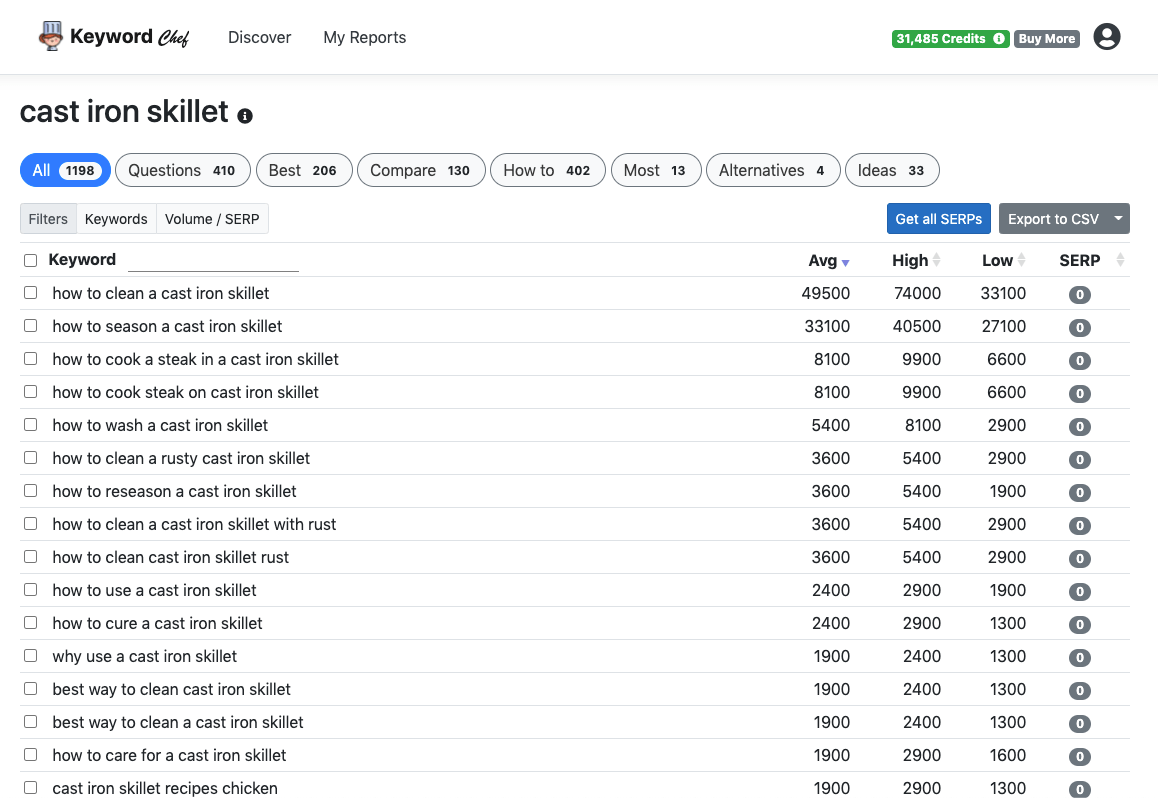
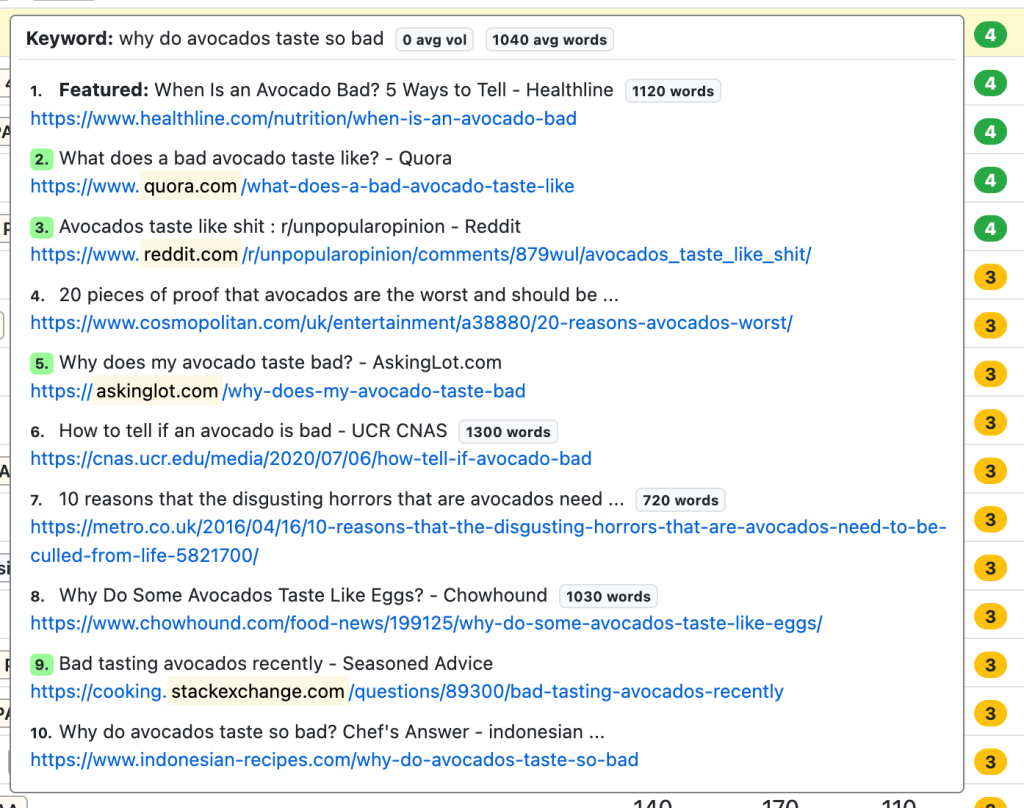
And here's a video demo of Keyword Chef:
Try Keyword Chef HereThe Target Market
Keyword Chef works really well at finding long tail keywords, especially for popular niches a lot of people have questions about. This makes it great for bloggers and people building niche sites. The tool isn’t really designed for people doing e-commerce or local SEO.
How Much Money Keyword Chef is Making
Last year I was able to make a healthy full-time income from my tool. I also brought on a part-time developer in December to take over most of the software development. The Black Friday sale brought in a significant amount of revenue.
Ben's Marketing Strategies to Drive Growth
A few years ago I created a Facebook group called Affiliate Niche Builders to promote a course I was creating on how to build niche websites. I only got a few sign-ups and realized I didn’t really enjoy making courses so I stopped. However, I kept growing the group. When I launched Keyword Chef, I already had an audience who liked and trusted me, which was extremely valuable.
Through the Facebook group, I was able to connect with a lot of other influencers who helped promote me on their YouTube channels and inside their courses. Some of these influencers ended up reaching out to me to say it was one of the best products they ever used. Word of mouth started growing on its own from there.
This was really helpful for me since I don’t consider myself a strong marketer. I don’t run ads or do fancy funnels or email campaigns. I haven’t even focused on SEO yet. With word of mouth, I can focus on creating a quality product and let marketing take care of itself.
It’s been said that you only need to do two things to build a business:
- Talk to customers
- Solve problems
In my opinion, that’s what business is all about—solving real problems for your customers. You can totally build an online business just by doing those two things.
I believe that, especially when starting an online business, compassion is the new marketing.
People are tired of being sold to and just want to be helped. The best way to make a connection with your users is to actually help them. Have conversations and answer their questions. Despite having thousands of users, I never had to send direct messages or ask people to sign up.
A lot of Facebook gurus may call this “Facebook organic,” which is a term I don’t particularly like. For me, I genuinely do enjoy helping others and it just so happens to be taking place on Facebook. Helping others isn’t a “marketing strategy,” it’s a core value; it’s something that takes work and compassion.
I see companies doing this more and more on social media but it’s hard for some companies to do. The reason is you can’t fake it, at least not for long. Companies also need to be eating their own dog food as well—that is, using their own product.
Starting to Focus on SEO
I just started to focus more on SEO. I’m using Google Search Console to find keywords that I’m getting impressions for and creating pages around those keywords. I want to start creating more helpful content and become a learning resource for people in the industry.
Achieving Current Revenue Levels
Even though Keyword Chef is only on a pay-as-you-go model right now, revenue has been surprisingly steady. I didn’t have a big launch and it took roughly 6 months to get to steady revenue levels.
The Official Launch
The first time Keyword Chef was announced publicly was in January of 2021. It was actually done by another influencer who did a review of it in his Facebook group. Shortly after that, I posted a pre-recorded video demonstrating the product in my own group.
I believe soft launches are the way to go as opposed to hard launches that reach more people and generate a lot of buzz. Soft launches allow you to test with smaller groups of people, get feedback, and make your product better for the next group of people.
Finding a Pricing Model That Works
Pay-as-you-go was the most simple for me, and I used it as a marketing differentiator. The data costs on my end is pay-as-you-go so it was the most simple solution to bill my customers the same way.
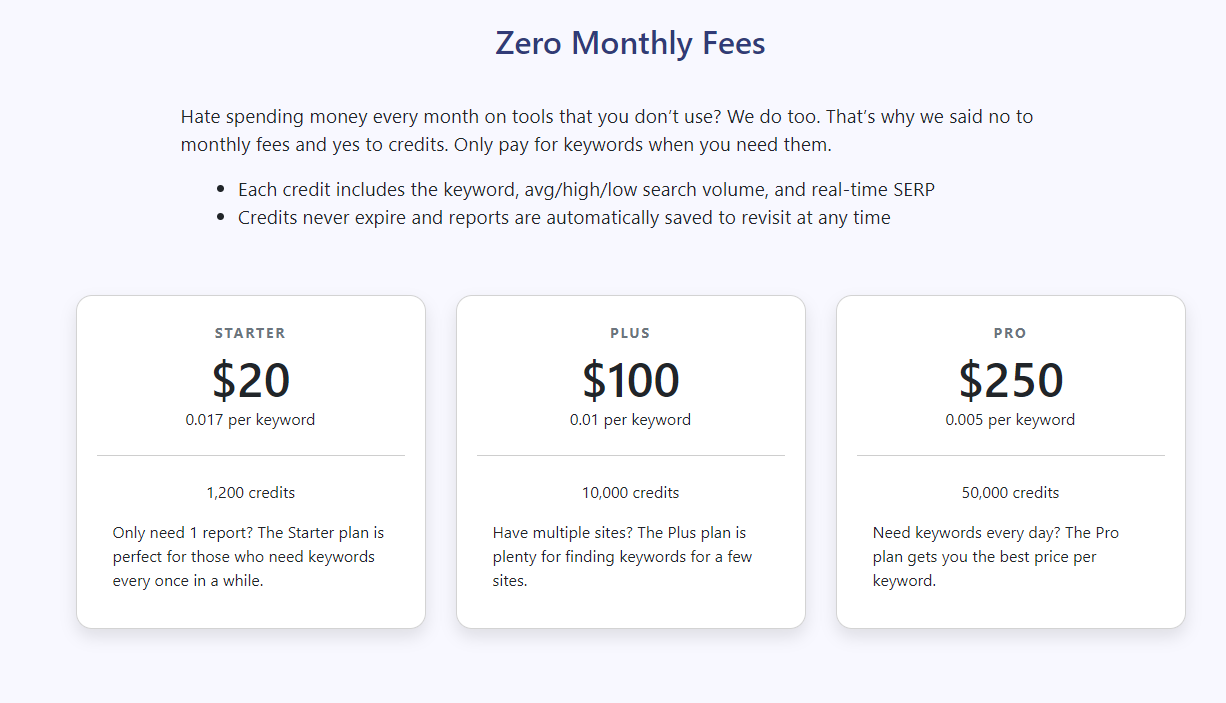
Later on, I realized a lot of customers enjoy this model. Sometimes people just do keyword research once a month or might go months without doing any. Pay-as-you-go allows them to be able to use Keyword Chef as much or as little as they want with no consequences.
Additionally, some users just want to import and check a bunch of keywords at once and don’t want to pay a monthly plan just for doing that.
Ben's Top Three Tools
I don’t use many tools at all. I’m not a big fan of fancy, complicated systems and prefer to keep things simple. This mindset also comes out in my software, as a lot of people find it easy to use.
If I had to list tools that I use, they would be:
- Trello – I use this to assign and keep track of tasks for my developer. It’s free and very flexible. I also use this for a writing agency I work with.
- FirstPromoter – This is an affiliate marketing tracking platform to help me pay my affiliates. I keep the affiliate program private and typically only offer it to other influencers.
- My big ol’ whiteboard – I do a lot of thinking about product design and note-taking, so having a whiteboard in my office helps a lot.
Challenges in Growing Keyword Chef
Looking back, there were a couple of big stressors that I faced:
- Naming the product – It may seem simple, but coming up with a good name that's available is tough. I wanted something that wasn’t generic and boring like “Keyword Discover.” I wanted something that was fun and memorable that I could build a brand around. It probably took me a couple of weeks to come up with the name Keyword Chef. The idea behind the name is that the software would cook up keywords based on different “recipes.” I’m pretty happy with the name.
- Fixing cost issues – At one point, Keyword Chef was finding so many keywords that data costs started to become an issue. I’ve actually seen other projects fail because of the costs involved. During this time, I had to scramble to reprogram my app and temporarily restrict certain features while hoping I didn’t piss off too many users.
Ben's Most Important Accomplishment
I would say there are two big accomplishments.
First, though I have a programming background, I’ve never done a full-stack project before from design, architecture, APIs, servers, management, etc. I had to learn a lot and figure things out as I went along, and I’m still learning new technology. A lot of it was doing research and asking questions in Facebook groups. I had one competitor that I’m very grateful to for helping me with an important technology piece.
Being able to build something from scratch on my own that people love a lot and pay for is a big accomplishment that I probably don’t give myself enough credit for.
My second-biggest accomplishment was making a healthy full-time income my first year. Comparatively speaking, for a completely bootstrapped SaaS business, it’s a great number and very validating for future growth.
If Only He Knew When He Started
I probably should have thought about the product design more in the beginning. I know products can change often in their early stages, but certain things that I was admittedly lazy about implementing later were the source of stress. They say to “launch early, launch often,” which I agree with, but that doesn’t mean you should be too lazy about planning either.
His Biggest Mistake With His Business
This is a hard question for me at the moment. Though I’ve failed at some things, I wouldn’t call any one moment a “big mistake.”
For me, it’s all part of the learning and growing process. If you’re not failing or making mistakes somewhere in your business, you're not growing. Growth requires learning new things that you won’t be familiar with or necessarily good at. Even established multi-million dollar companies make mistakes all the time.
One mistake I did make was not selling my review site sooner. It peaked and started declining as the competition got harder and I started neglecting it. Also not having ads on my site sooner. I missed out on thousands of dollars because I thought ads were “spammy,” not knowing how much money they can make.
Advice for Other Entrepreneurs
I know it’s not for every personality type, but building an online audience has been the most helpful thing by far. Go on Facebook, Reddit, YouTube, TikTok or whatever platform you enjoy the most and just start helping people and creating content.
In the book, Lost and Founder, Moz founder Rand Fishkin says this is exactly how he got started. He was helping people on forums and blogging about SEO every day. I’m not comparing my company to Moz, but I feel like our philosophy in getting initial traction was the same, and that is genuinely helping people and creating a community.
A lot of people are afraid at first of being on camera, looking good, saying the right things, or looking smart enough. It does get easier though the more you do it. People are craving authenticity. And if your project fails or you need to pivot, you’ll still have an audience to which you can still sell new products.
Want to learn step-by-step how I built my Niche Site Empire up to a full-time income?
Yes! I Love to Learn
Learn How I Built My Niche Site Empire to a Full-time Income
- How to Pick the Right Keywords at the START, and avoid the losers
- How to Scale and Outsource 90% of the Work, Allowing Your Empire to GROW Without You
- How to Build a Site That Gets REAL TRAFFIC FROM GOOGLE (every. single. day.)
- Subscribe to the Niche Pursuits Newsletter delivered with value 3X per week
My top recommendations
